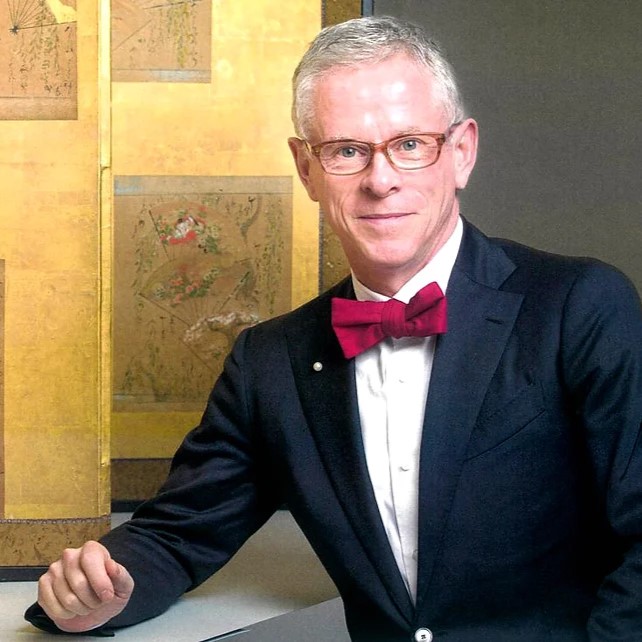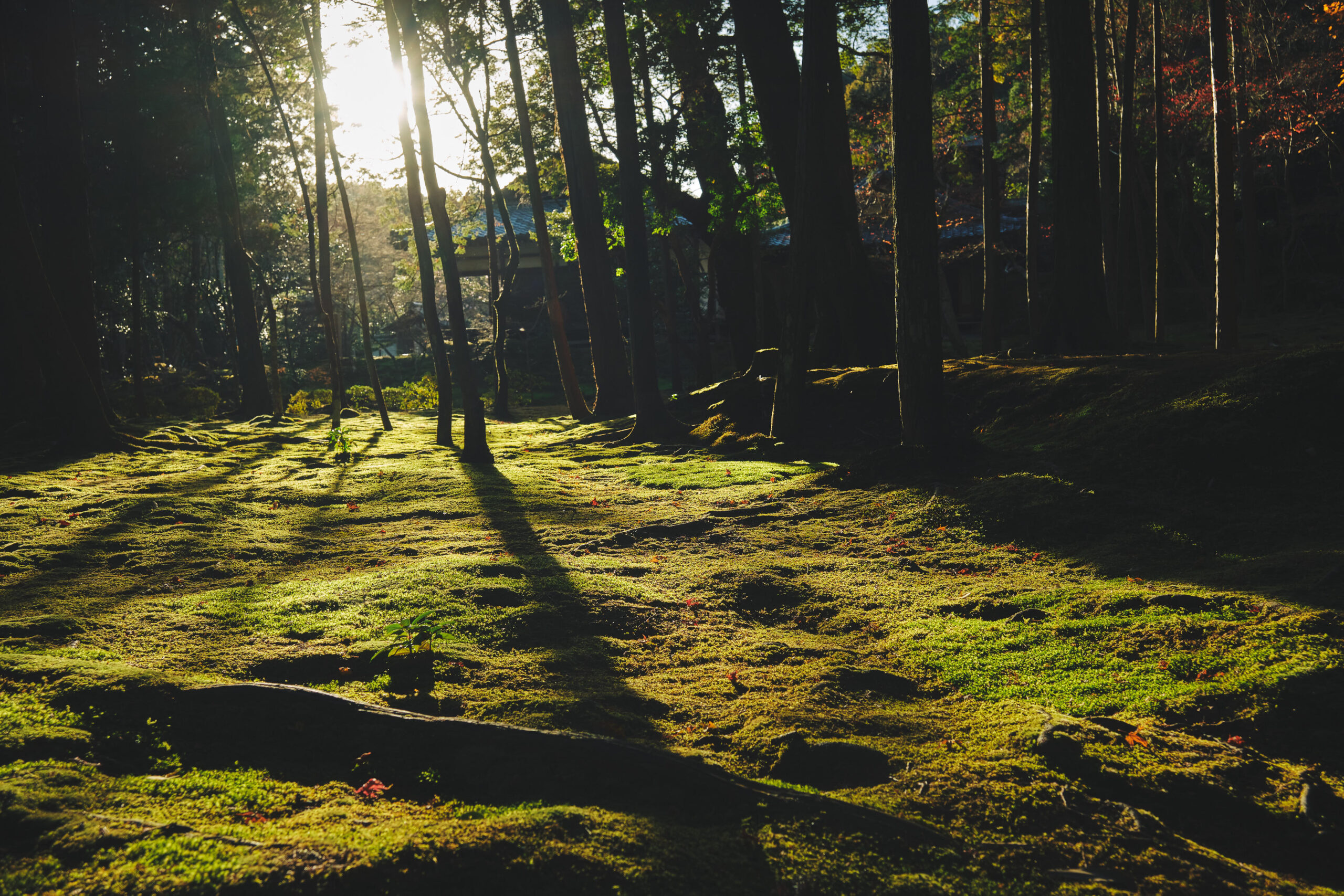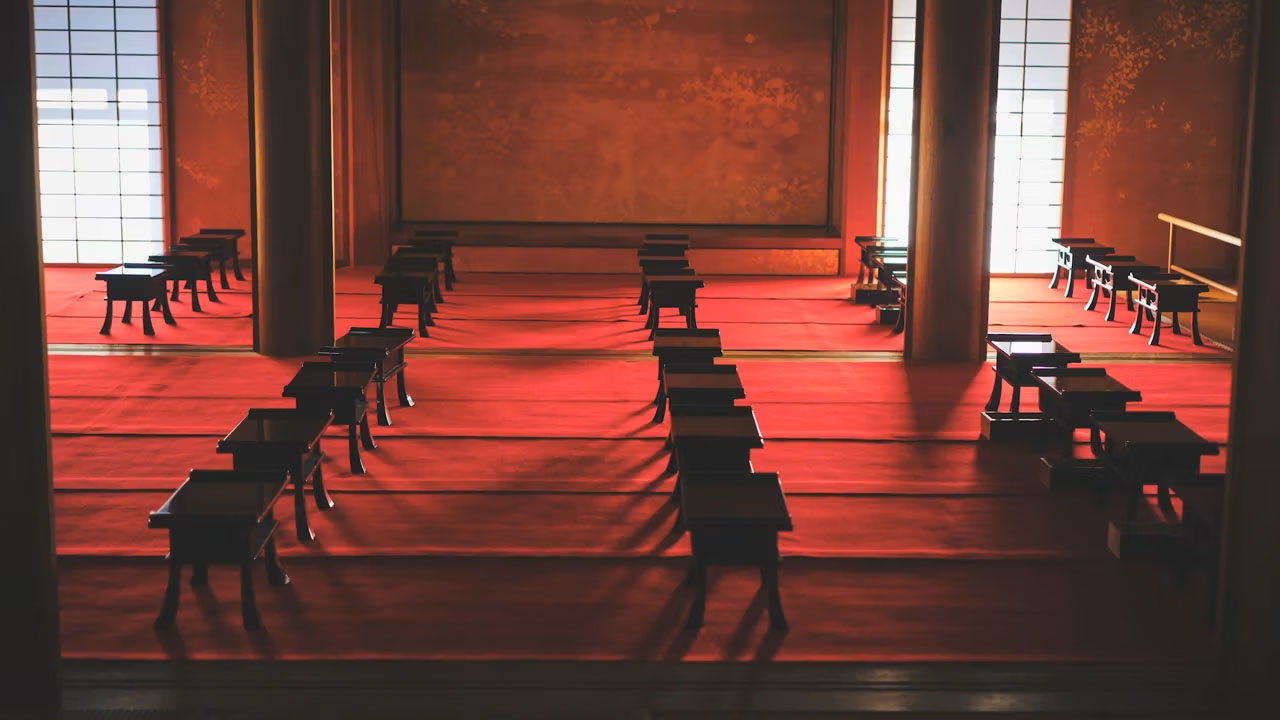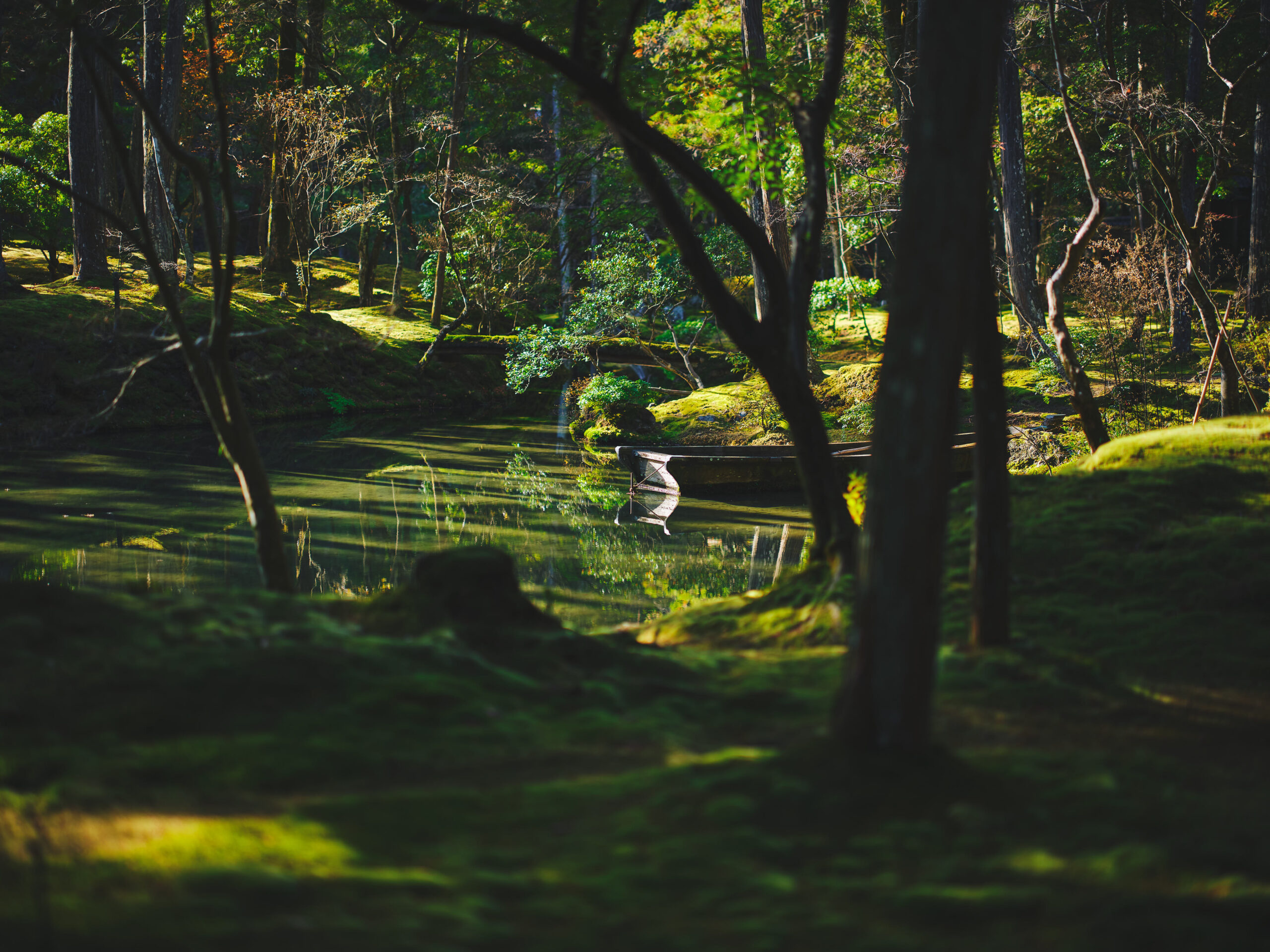2025.1.20
Winds of Gold—One Hundred Views of Saihoji Vol. 9
Peter MacMillan / a translator, scholar, poet
In this series of essays on Saihoji the renowned translator of Japanese poetry and poet Peter MacMillan records his impressions of and reflections on his visits to the garden throughout the four seasons. We hope that through these essays you the readers and fans of Saihoji can feel as if you are also present in the magical garden even when you cannot visit us.
A Beauty Unheard of…
This month’s visit to Saihoji coincided with the peak of the maple leaves. The maples were late this year, and I had visited another temple the previous week, when only half of the leaves had changed color. Because of that I was not expecting to see magnificent maples, and I cannot describe fully the feeling of astonishment at seeing the maples upon entering the garden.
A dazzling brocade of maple in reds and yellows in dappled sunlight suddenly came into view. My breath was completely taken away, and I felt as if my heart had jumped out of my body, bewitched by the magic of the maples. I visit the garden very often and I know it is always different. I knew too that this view of the garden would only exist for the briefest time, that I would never see this exact same view of the garden, and that made it even more special for me.
I was reminded of the poem by Ariwara no Narihira:
Such beauty unheard of
Even in the age of the raging gods—
The Tatsuta River
tie-dying its Waters
in autumnal colors.
In classical Japanese the Tatsuta River was a place synonymous with beautiful maples. The original poem opens with the word chihayaburu which is a pillow word that is hard to translate but it is often paired with gods and refers to their awesome power. For the ancient poets this word has a magic power, and by using this single word, the poet opens the door to a new dimension, a world of godly awe and beauty that transcends the everyday.
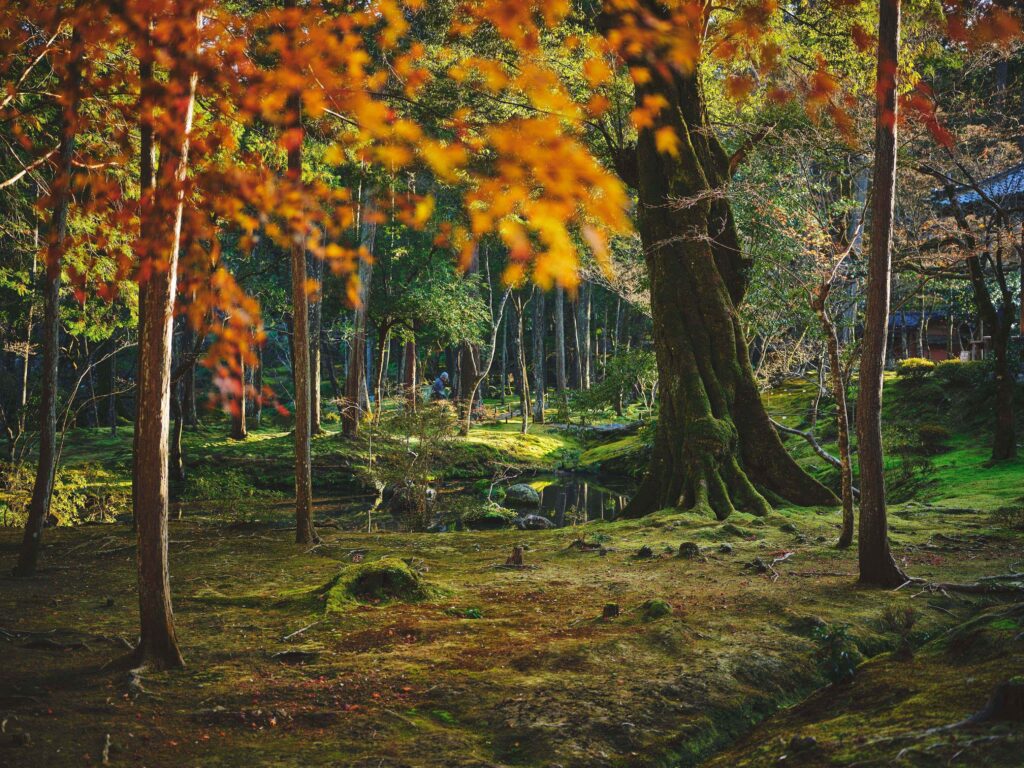
I had the same feeling of awe and beauty the moment I entered the garden, and I understood what the ancient poets were aiming to express. The poem describes the maples on water, but my view was of red and yellowed maples lit up in the dappled morning sunlight with lovely green mosses and water beneath.
After viewing the garden, I went into the temple and returned an hour later. Already the sunlight was dimmed by clouds, and though still beautiful, it seemed like a different place. Every time I visit, I feel that Saihoji is teaching me a lesson. The lesson today was that life, like nature, is always full of beauty and surprises, and is always fleeting. No matter how tiny a life we live, there is always a time when we can experience the greatest beauty, and that beauty teaches us the power of nature and how the universe supports us fully. But as our lives are also fleeting and we live only once, we must live our lives to the fullest as much as we can.
It may seem hard but if you pursue your dream, nature and the universe will support you, and you, too, can bloom like a flower, be resplendent in autumn colors, live by the light of the sun, by the waters of the springs and the riches of the earth.
Peter MacMillan
Peter MacMillan is a prize-winning translator, scholar, poet, and President of The Moon is a Boat Co., Ltd.
His translation, One Hundred Poets, One Poem Each (Hyakunin Isshu), was published in 2008, winning prizes in both Japan and the United States. After that, he completed an English translation of The Tales of Ise (Ise Monogatari), which was published by Penguin in 2016. He has also published a collection of poetry entitled Admiring Fields.
Awards:
Recipient of the Donald Keene Center Special Prize for the Translation of Japanese Literature
Recipient of the 44th Special Cultural Translation Prize from the Japan Society of Translators
Nominated for the PEN Award for Poetry Translation for the English translation of The Tale of Ise (Ise no Monogatari)
